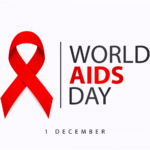Strategies to Eradicate Viral Hepatitis in Africa by 2030 – Experts

A group of experts from the African region convened on Monday to highlight key strategies in the fight against viral hepatitis. The consensus was clear: integration of hepatitis elimination services into existing health systems, political commitment, adequate funding, and widespread vaccination campaigns are essential pathways to achieving the ambitious goal of eliminating viral hepatitis in Africa by 2030.
This critical discussion took place during the World Health Organization (WHO) side meeting at the African Hepatitis Summit, where new guidelines were disseminated. According to the experts, viral hepatitis infection is a global public health and development concern, with Africa significantly affected. More than 91 million Africans live with viral hepatitis B and C, posing a substantial health challenge.
The WHO reported that in 2019, an estimated 1.2 million new hepatitis infections and 125,000 hepatitis-related deaths occurred in the African region. This alarming statistic underscores the urgency of addressing viral hepatitis in the region.
The Urgent Need for Awareness and Access to Care
During the meeting, WHO’s Country Representative, Dr. Walter Mulombo, emphasized a glaring disparity: despite the availability of diagnostic tools and effective treatments, less than 10 percent of the African population is aware of these infections. Shockingly, over 90 percent of those living with hepatitis in the region do not receive the care they require. This lack of access leads to the progression of advanced liver disease, severe financial burdens, and a host of other negative consequences.
Dr. Mulombo, represented by the Deputy Country Representative, Dr. Alexander Chimbaru, called upon member states in the African region to harness available tools and interventions to ensure liver health for all. He urged the adoption of WHO’s global hepatitis strategy, which aims to reduce new hepatitis infections by 90 percent and related deaths by 65 percent by 2030. This strategy utilizes a public health approach and has been endorsed by all WHO member states.
Dr. Mulombo also emphasized the importance of political commitment, community engagement, and the involvement of policymakers and partners to successfully combat hepatitis. He pointed to Nigeria’s potential to achieve the 2030 target due to the infrastructure, political will, and community support in place.
The Burden of Hepatitis in Africa
Dr. Casimir Manzengo, the Hepatitis Focal Point at the WHO’s Africa regional office, revealed staggering statistics. In Africa, 82 million people live with hepatitis B, while 9 million live with hepatitis C. Alarmingly, only 5 percent of them are aware of their status, which prevents them from accessing essential treatment. Advocacy efforts to make services more accessible to patients were strongly encouraged.
Dr. Manzengo also stressed the need to expand the vaccination birth dose, as only 15 countries in the African region currently integrate hepatitis birth dose vaccination. Prioritizing this initiative is crucial to preventing infections at birth, which can lead to severe consequences such as cirrhosis and cancer.
The Importance of Integration and Advocacy
Prof. Olufunmilayo Lesi, the WHO team lead for hepatitis, highlighted the potentially devastating consequences of inaction. She pointed out that if viral hepatitis is not eliminated, the death rate from hepatitis B and C could surpass that of HIV and malaria by 2040. She drew attention to Egypt’s successful path towards eliminating hepatitis C and expressed optimism that other African countries could achieve similar results.
Challenges discussed included funding, which is estimated to cost about 8 billion for the global response, with a significant portion allocated to test kits and medications. Political will, national planning, and the coordination of responses were also deemed vital. Prof. Lesi stressed the importance of making viral hepatitis part of the public health approach, extending its reach beyond specialized clinics to general hospitals and primary healthcare centers.
As the African region confronts the substantial burden of viral hepatitis, the collaboration between experts, governments, and stakeholders remains essential to meeting the ambitious goal of eliminating viral hepatitis by 2030. Public awareness, political commitment, and resource mobilization will be crucial in the fight against this significant public health challenge.



